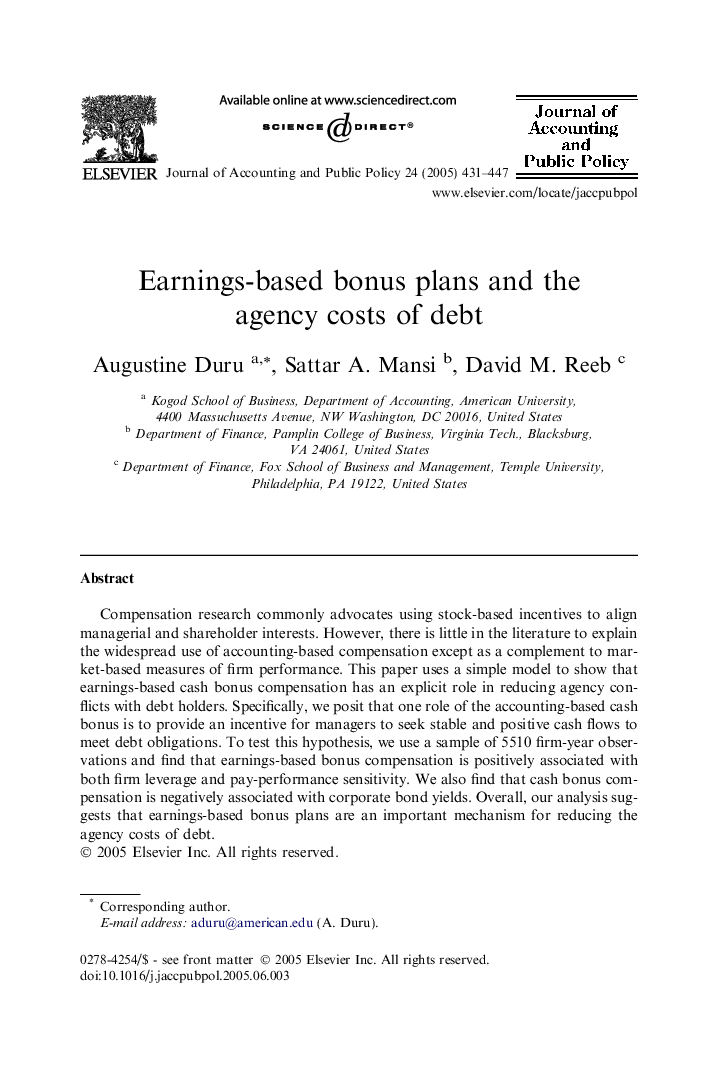| Article ID | Journal | Published Year | Pages | File Type |
|---|---|---|---|---|
| 10489629 | Journal of Accounting and Public Policy | 2005 | 17 Pages |
Abstract
Compensation research commonly advocates using stock-based incentives to align managerial and shareholder interests. However, there is little in the literature to explain the widespread use of accounting-based compensation except as a complement to market-based measures of firm performance. This paper uses a simple model to show that earnings-based cash bonus compensation has an explicit role in reducing agency conflicts with debt holders. Specifically, we posit that one role of the accounting-based cash bonus is to provide an incentive for managers to seek stable and positive cash flows to meet debt obligations. To test this hypothesis, we use a sample of 5510 firm-year observations and find that earnings-based bonus compensation is positively associated with both firm leverage and pay-performance sensitivity. We also find that cash bonus compensation is negatively associated with corporate bond yields. Overall, our analysis suggests that earnings-based bonus plans are an important mechanism for reducing the agency costs of debt.
Related Topics
Social Sciences and Humanities
Business, Management and Accounting
Accounting
Authors
Augustine Duru, Sattar A. Mansi, David M. Reeb,
